
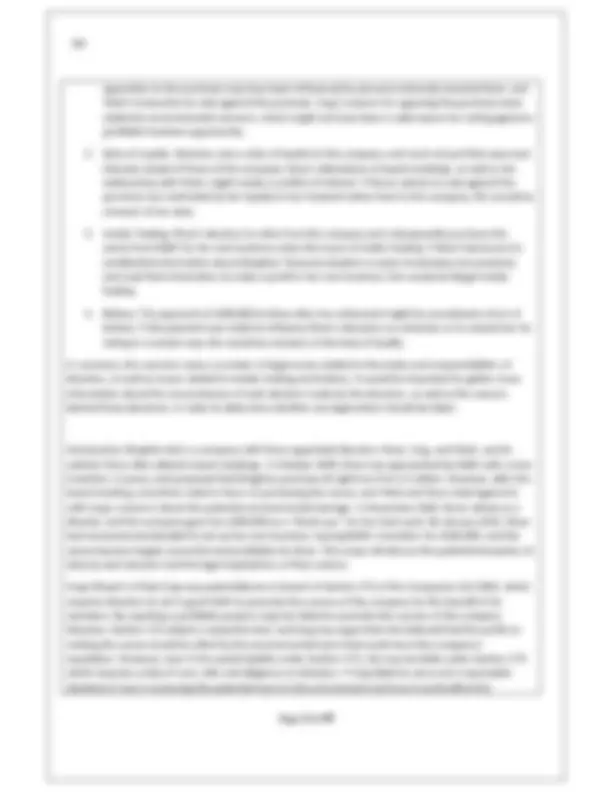
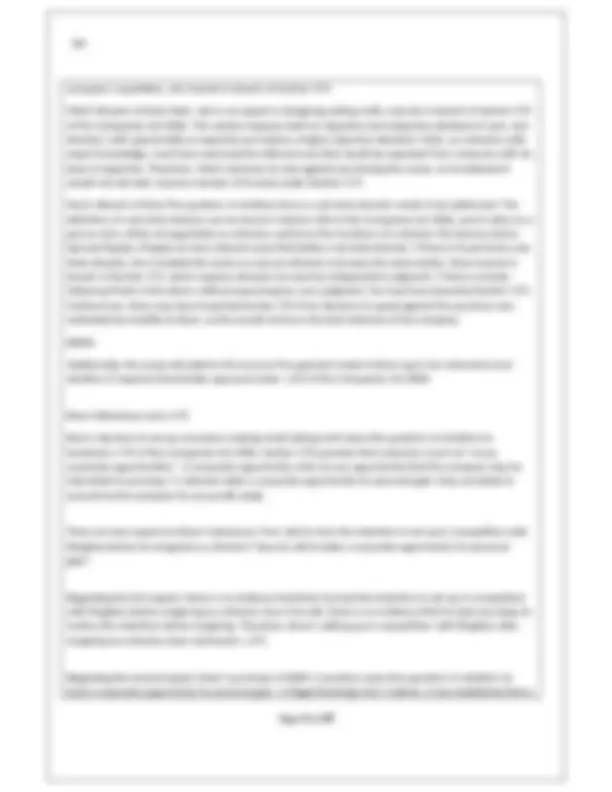
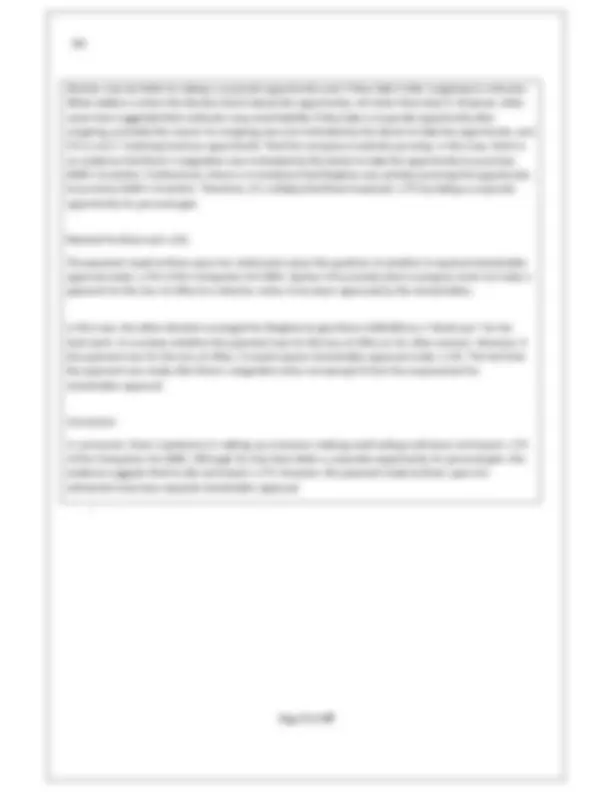
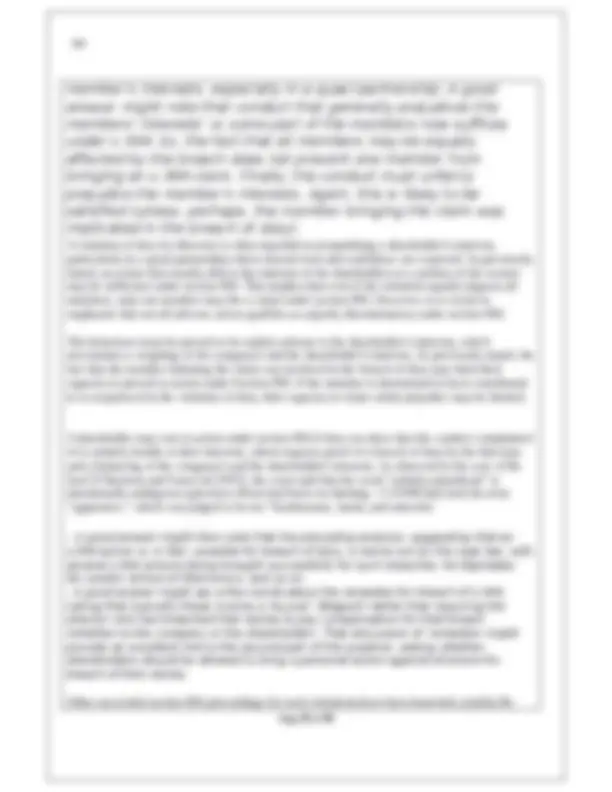
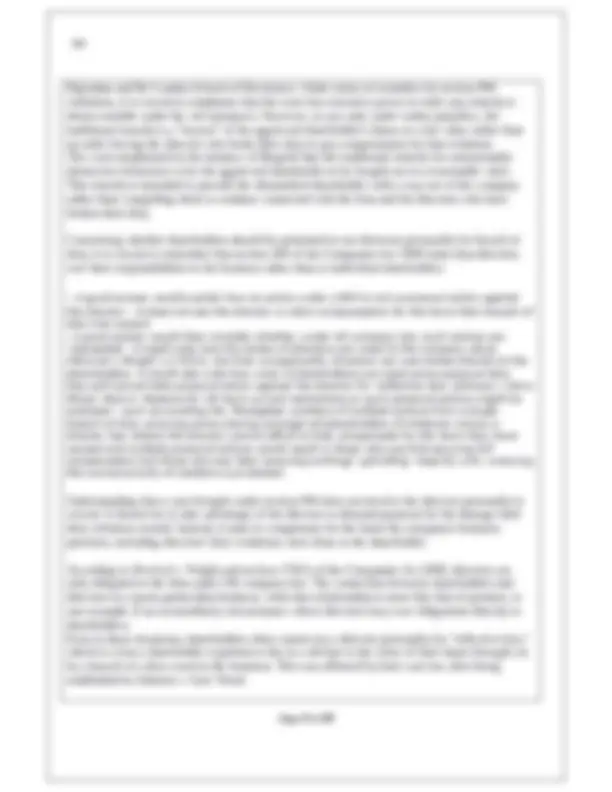
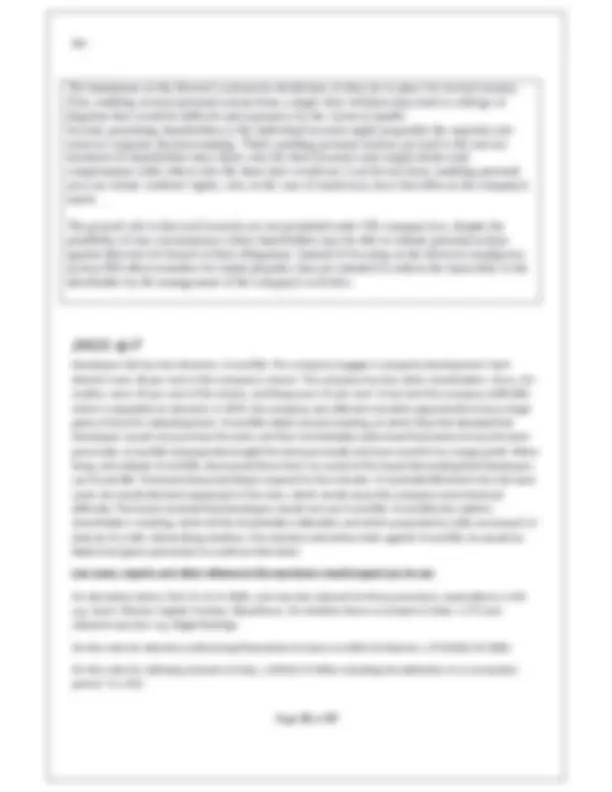
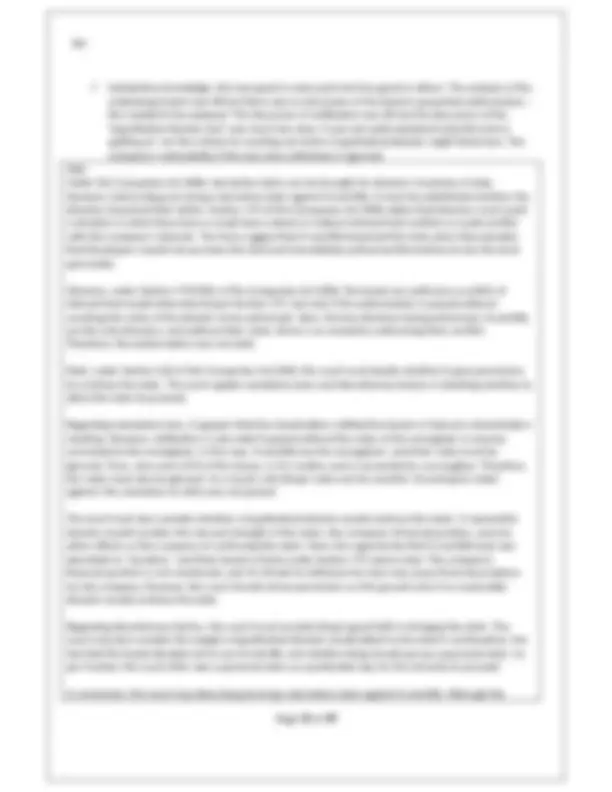
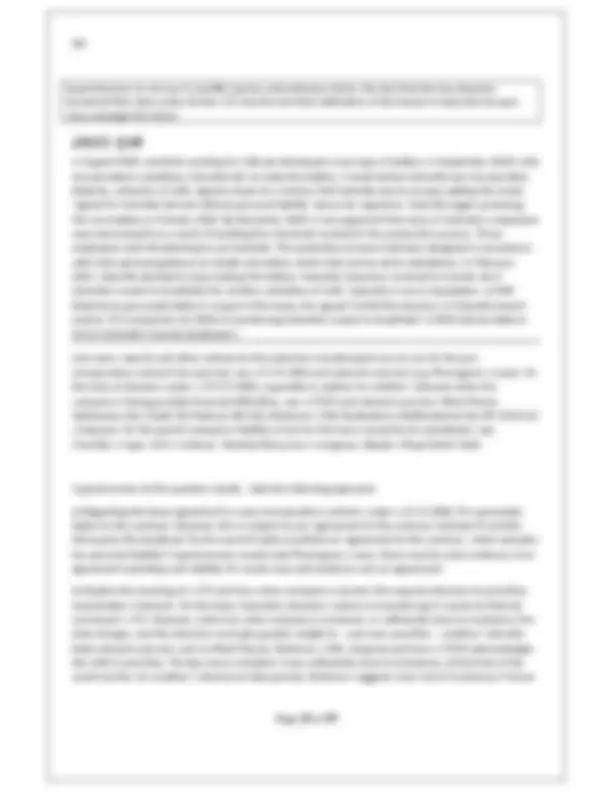
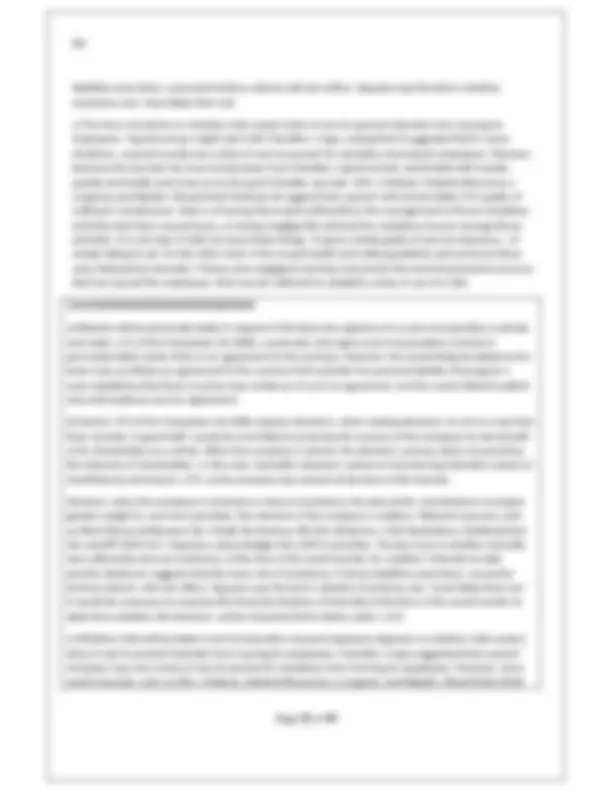
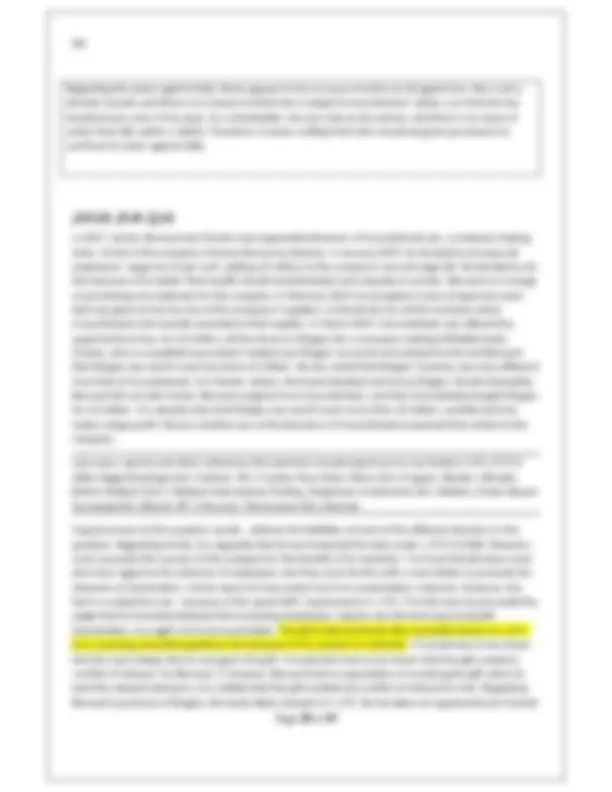
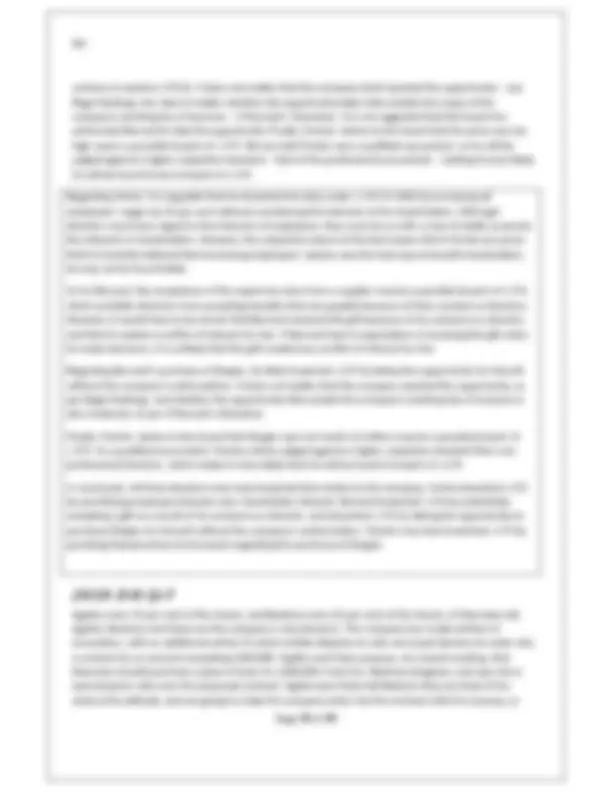
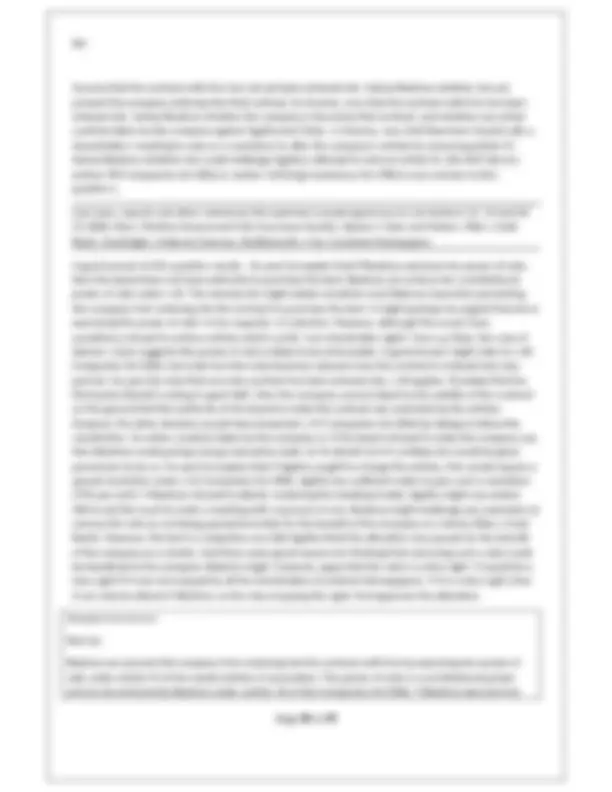
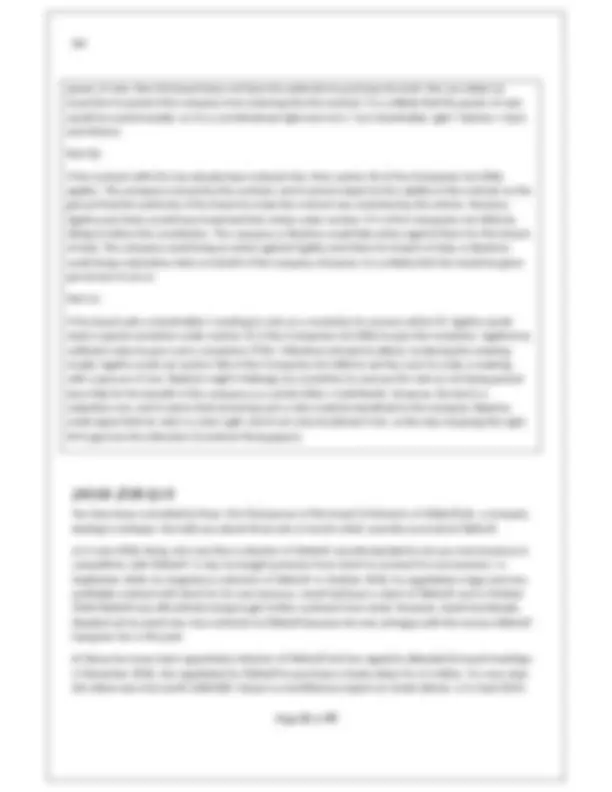
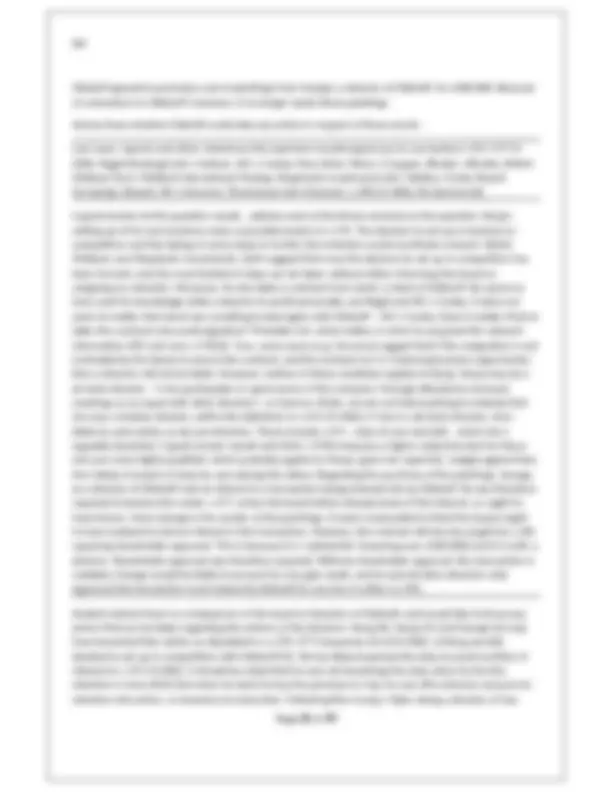
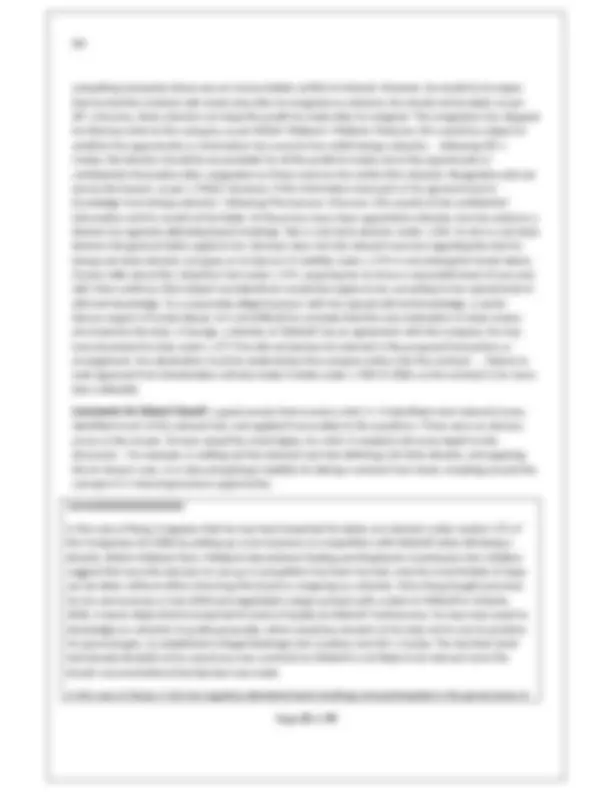
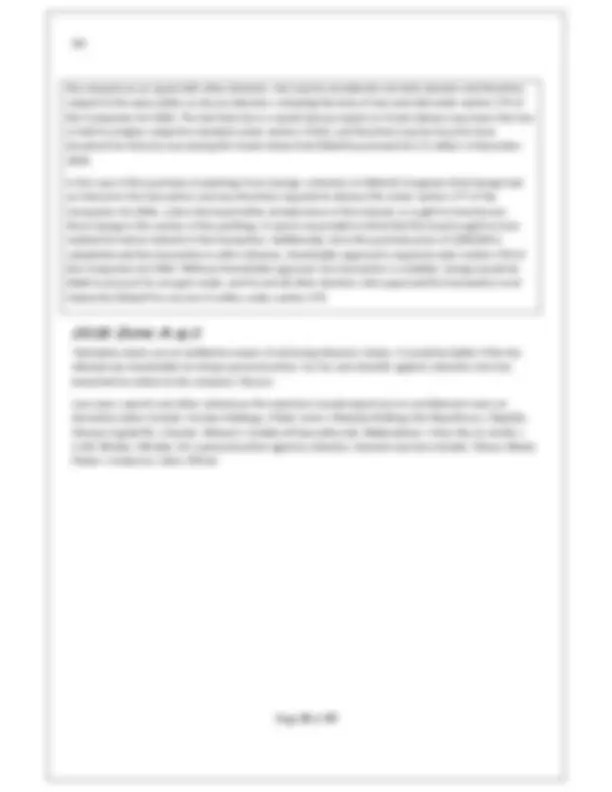
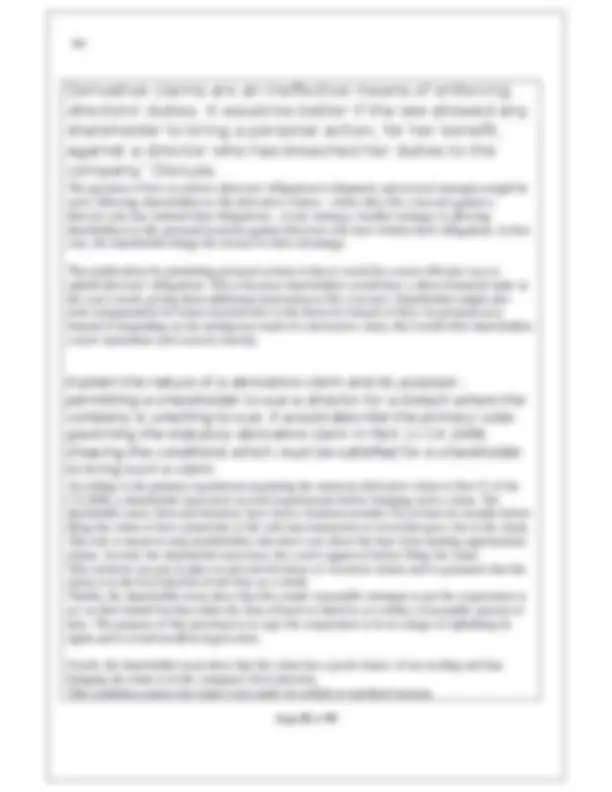
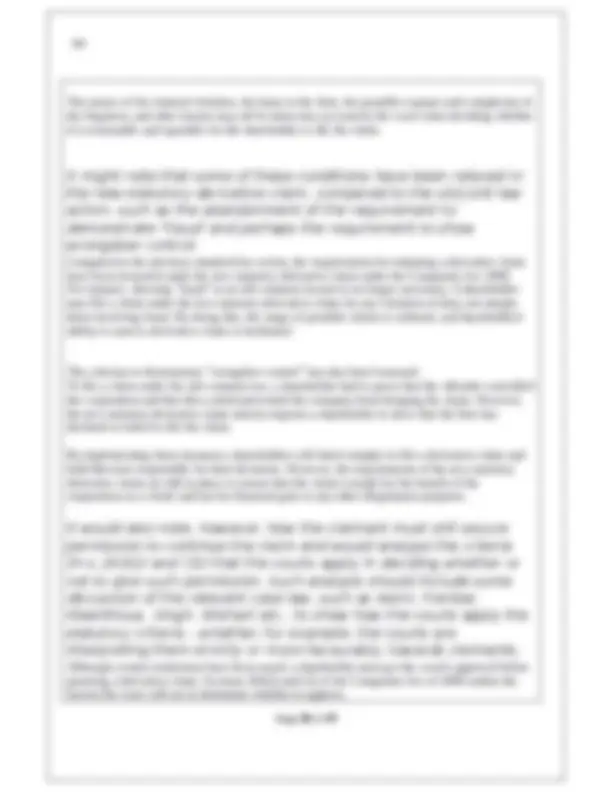
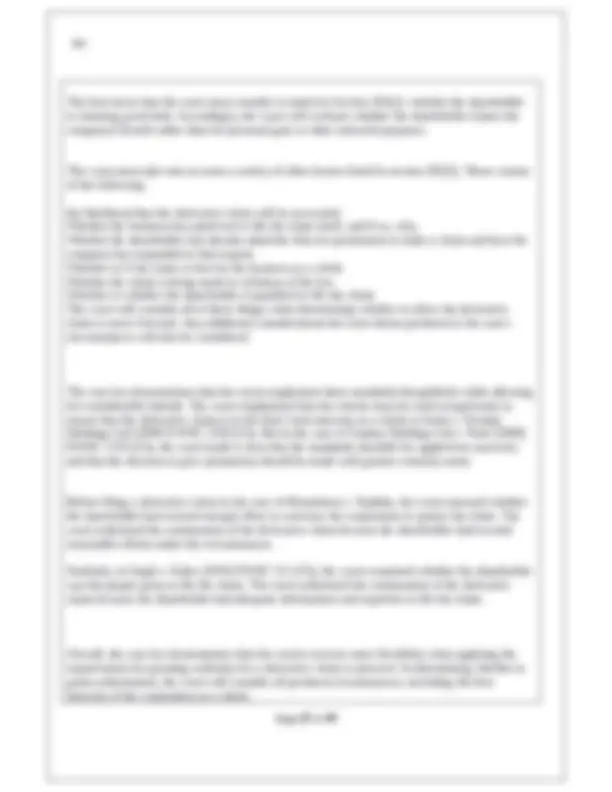
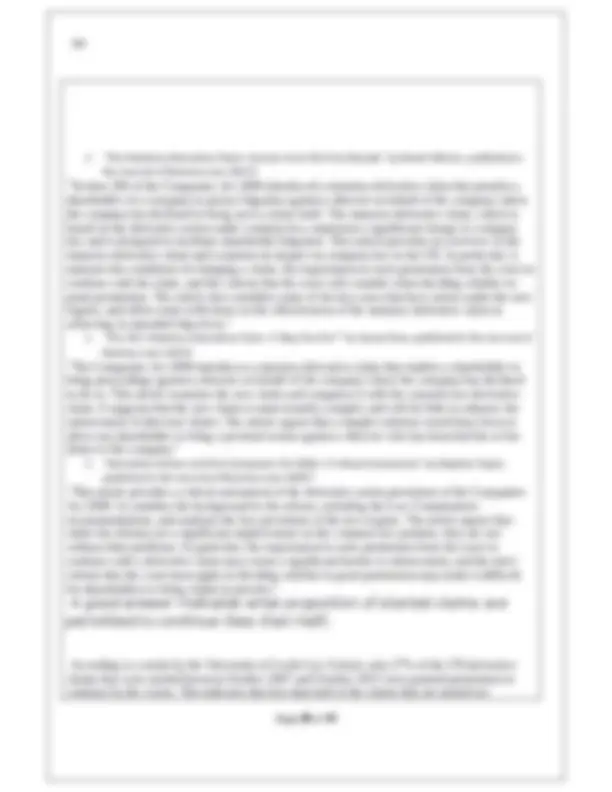
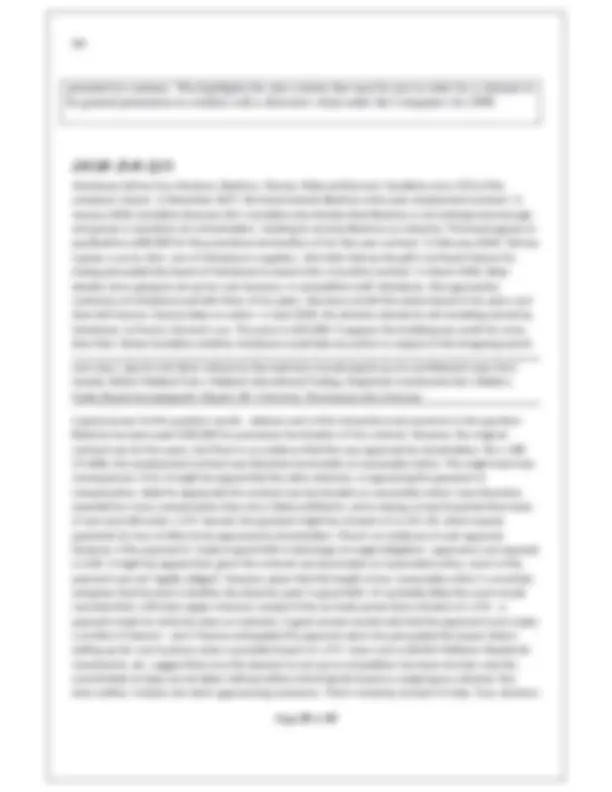
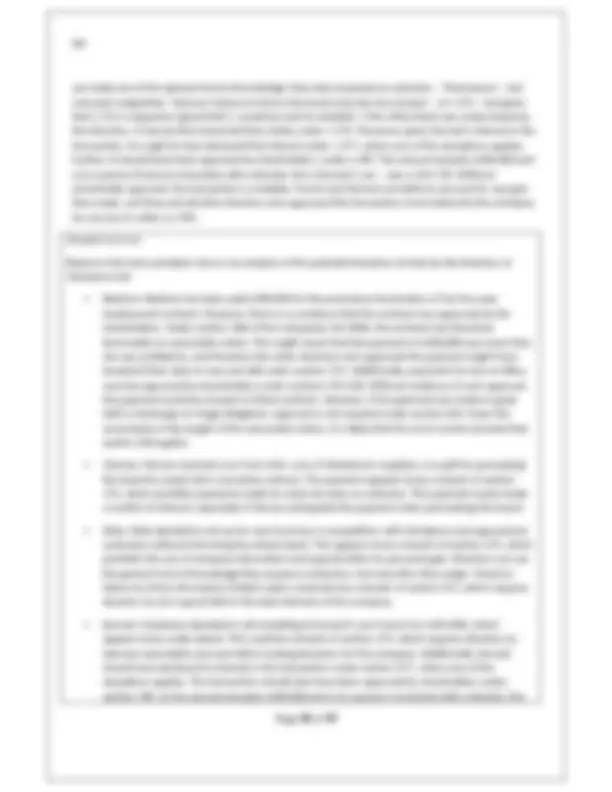
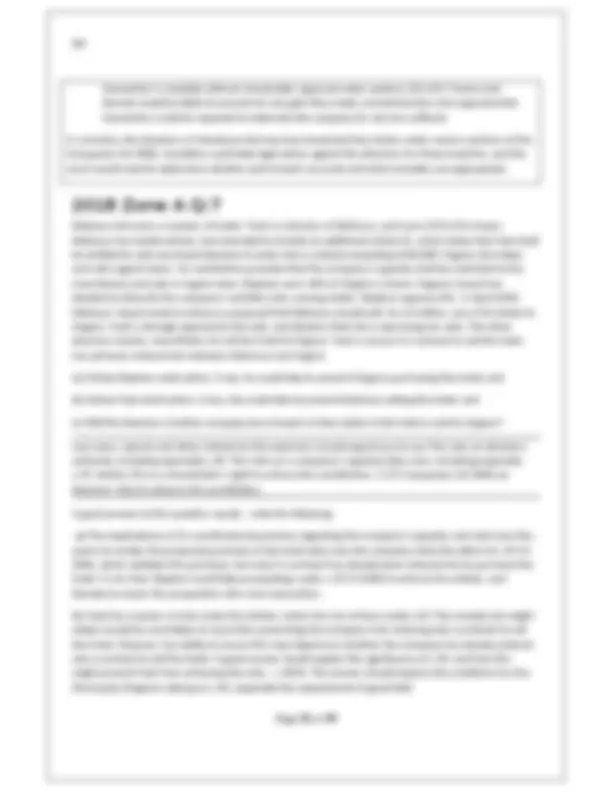
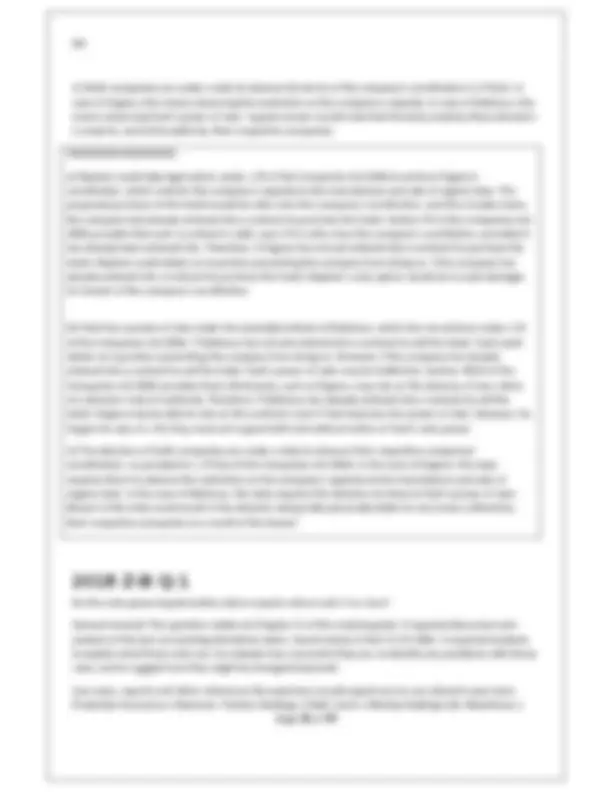
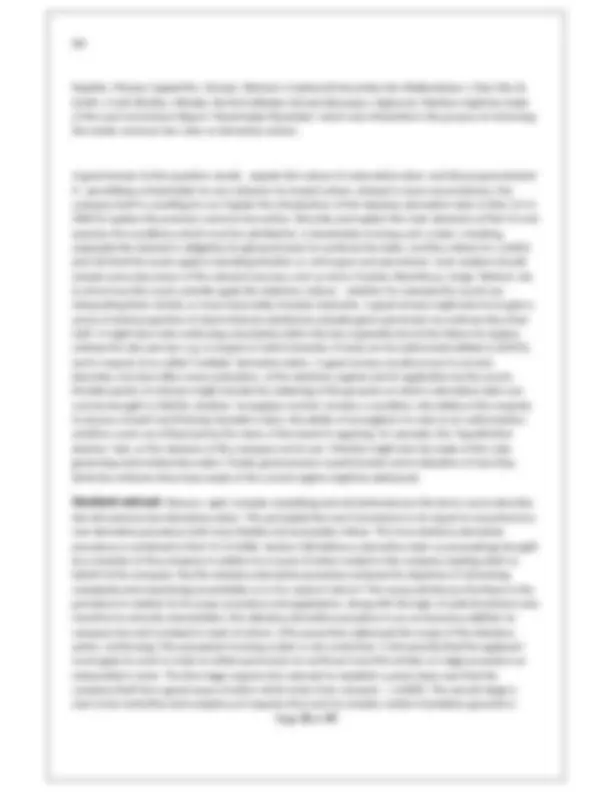
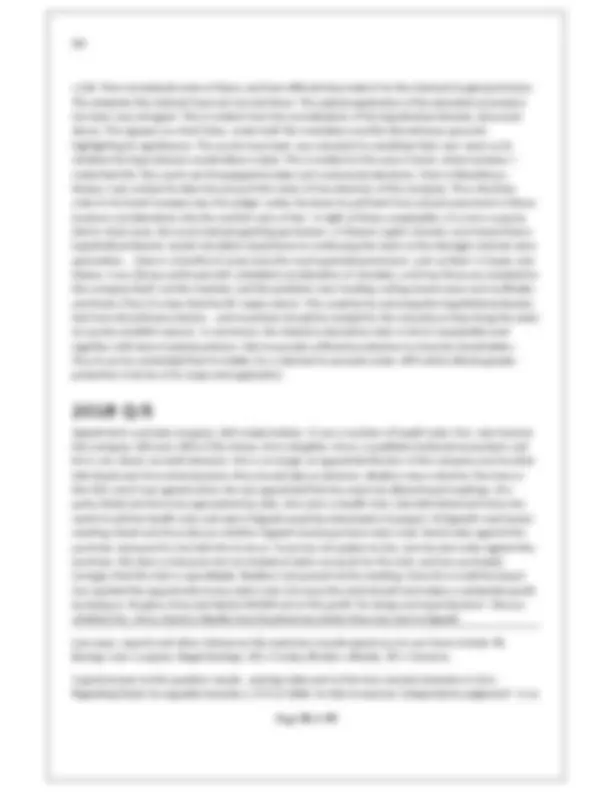
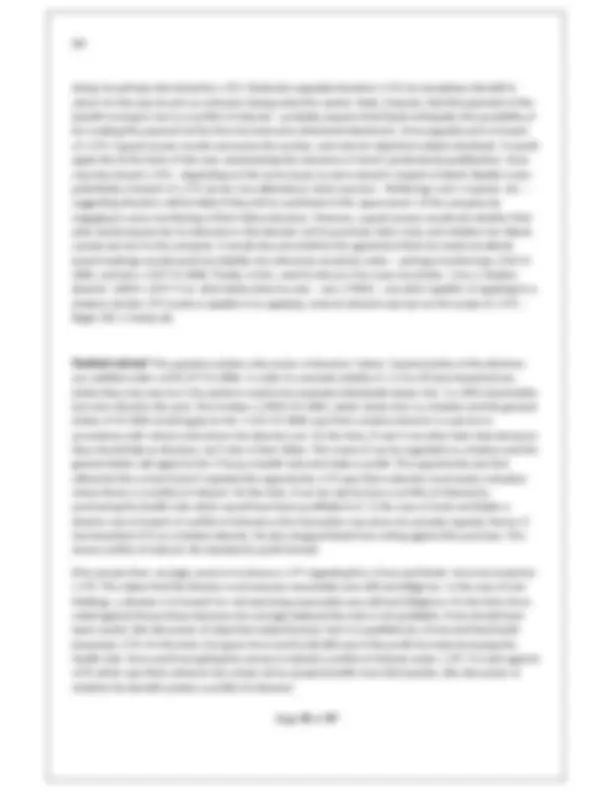
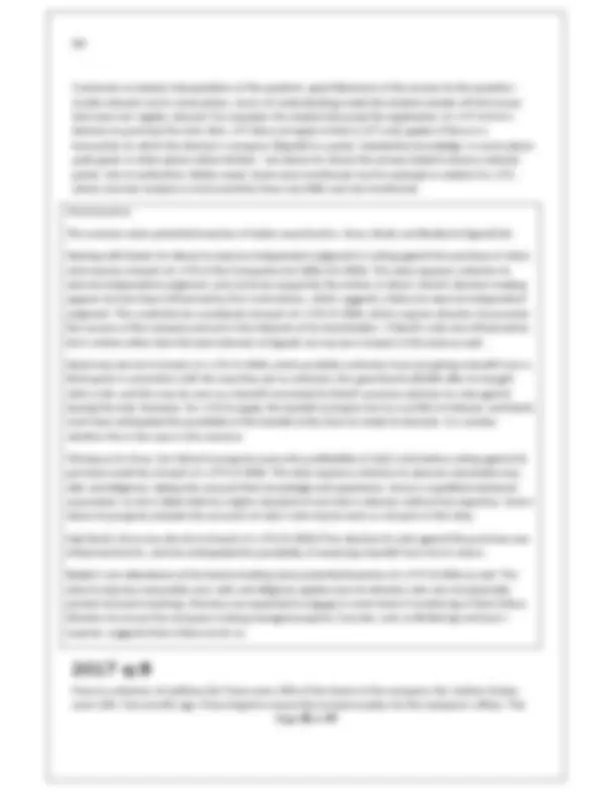
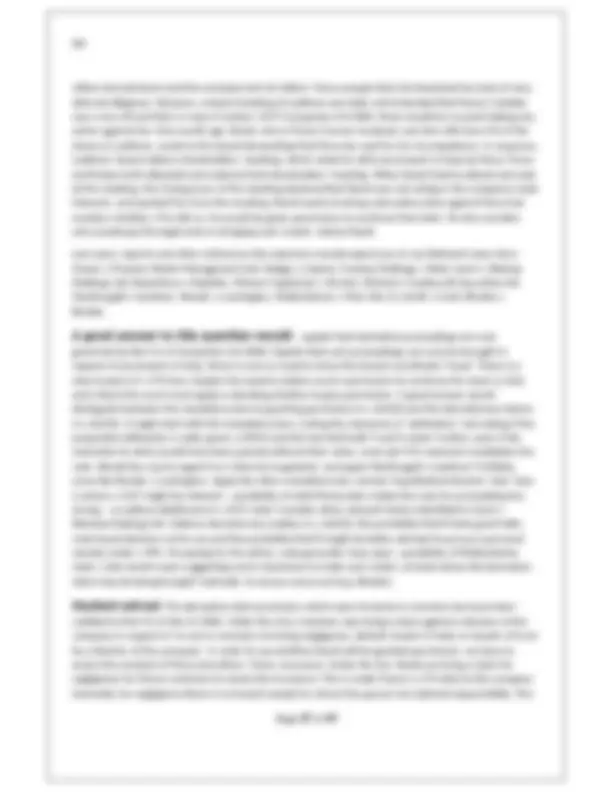
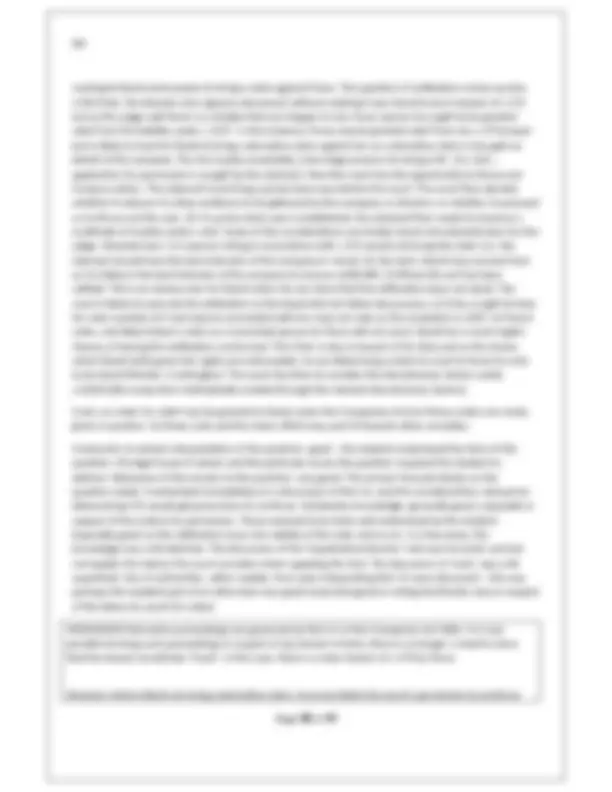
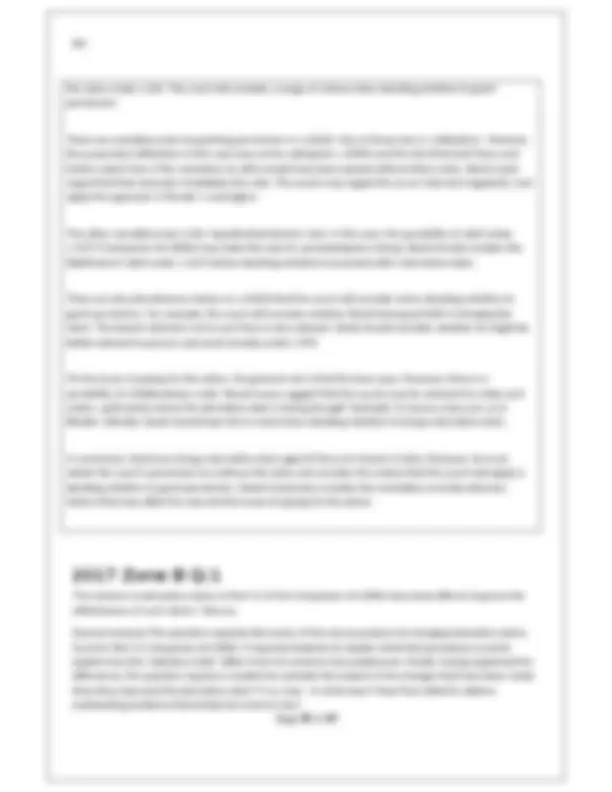
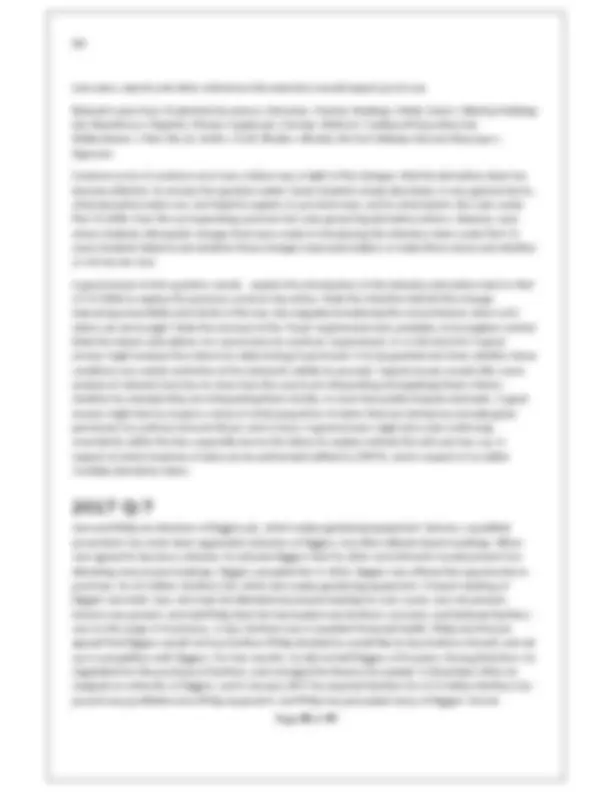
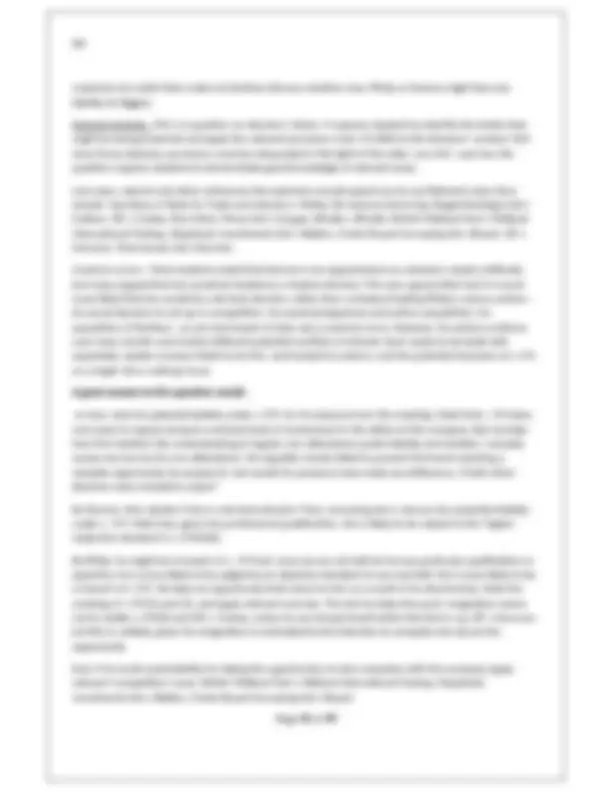
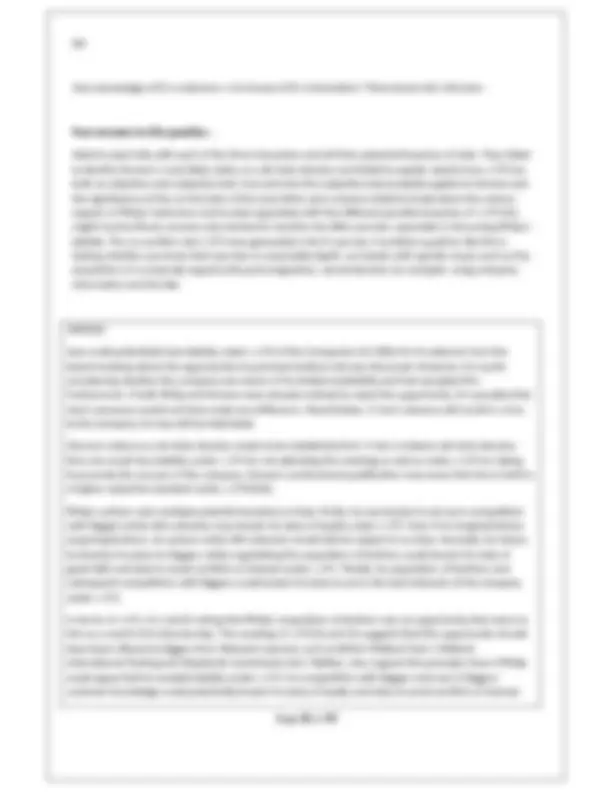
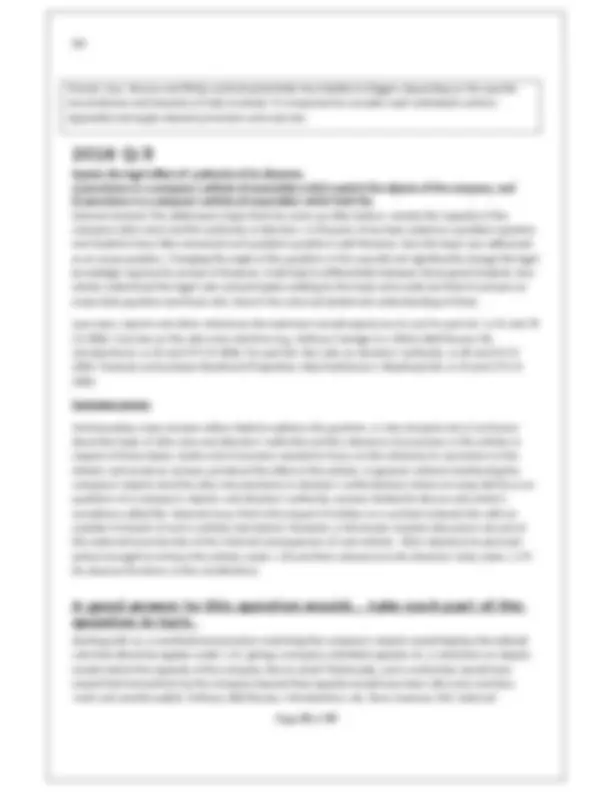
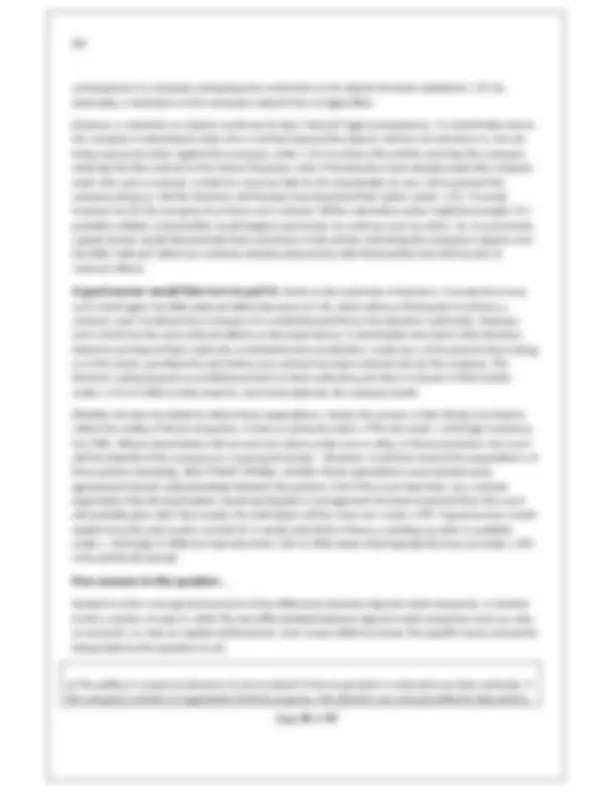
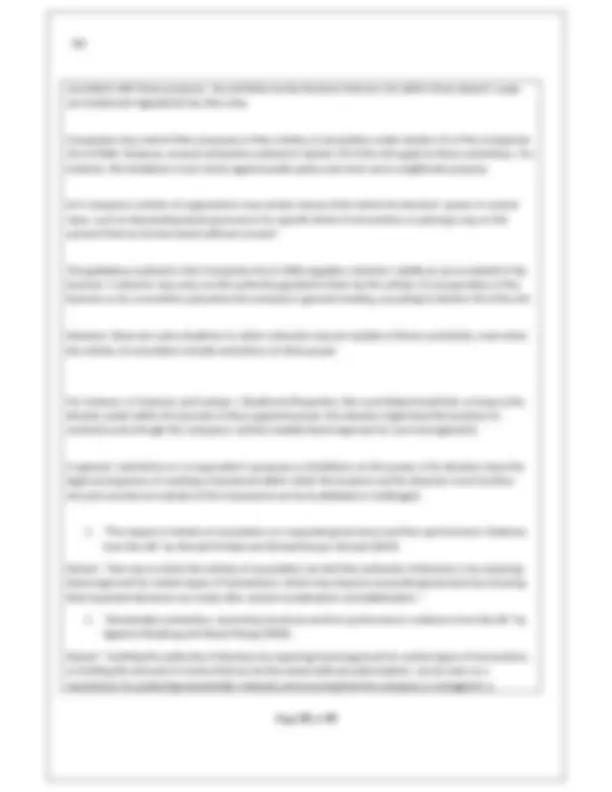
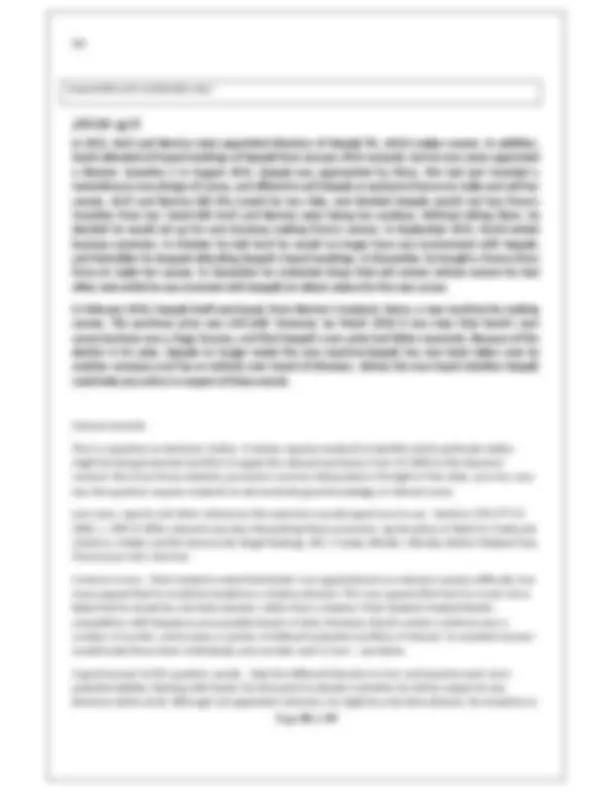
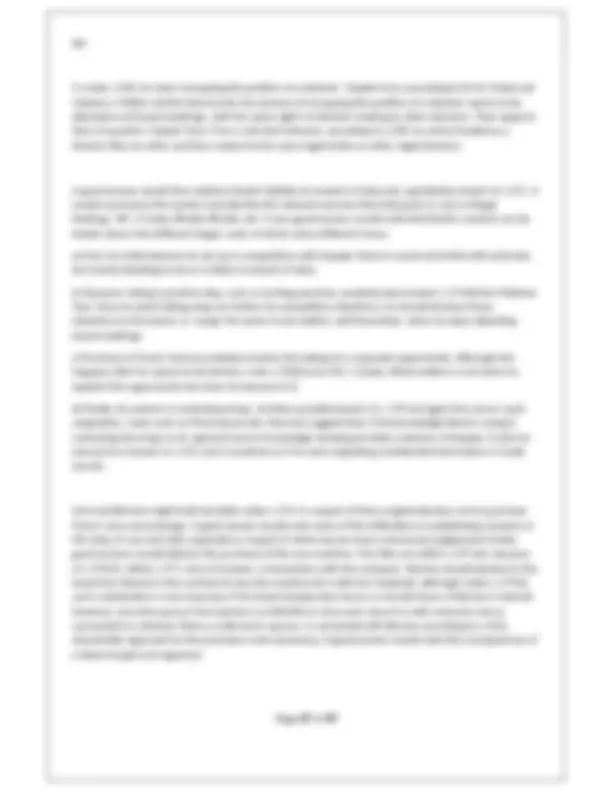
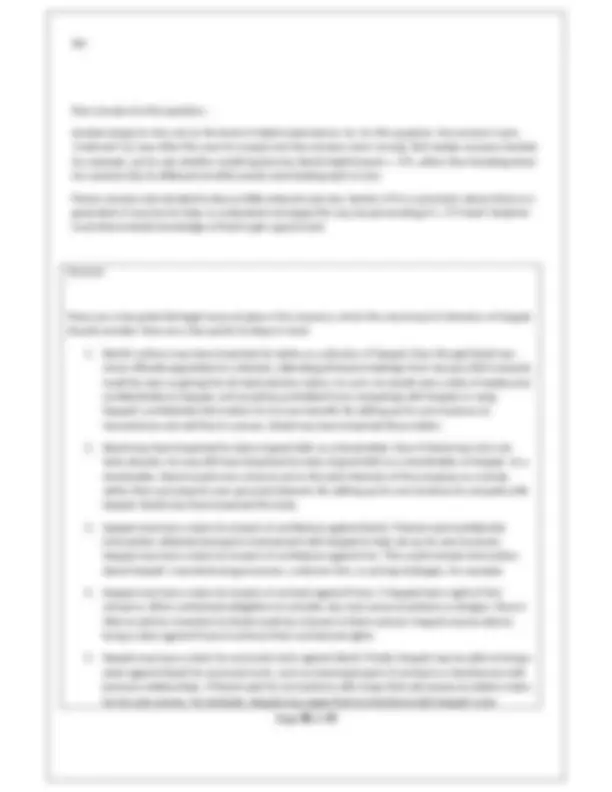
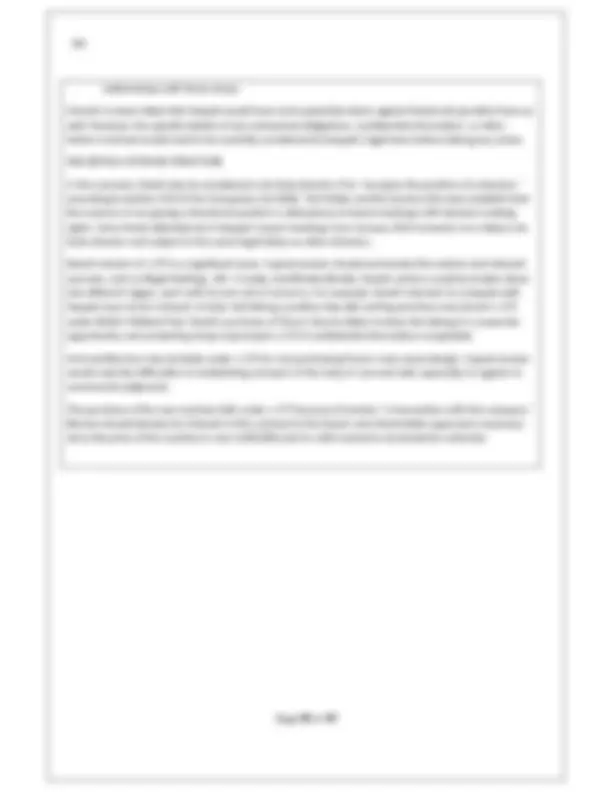


Study with the several resources on Docsity

Earn points by helping other students or get them with a premium plan


Prepare for your exams
Study with the several resources on Docsity

Earn points to download
Earn points by helping other students or get them with a premium plan
Community
Ask the community for help and clear up your study doubts
Discover the best universities in your country according to Docsity users
Free resources
Download our free guides on studying techniques, anxiety management strategies, and thesis advice from Docsity tutors
Consists of full solving from the last past 10 years of exam papers, consisting of both problem questions & essays! Ideal for your revisions
Typology: Exams
1 / 49

This page cannot be seen from the preview
Don't miss anything!










































Dinghies Ltd makes small yachts. The company has three appointed directors: Kiran, Ling and Mark. Mark is an expert in designing sailing craft. Nora, who is the company’s solicitor and is married to Mark, often attends board meetings. In October 2020, Kiran was approached by Edith at a social event. Edith told Kiran that she had just invented a new type of canoe. She asked Kiran if Dinghies would be interested in buying all rights to the canoe for £1 million. Kiran sent Edith’s designs for the canoe to Ling, Mark and Nora, and a board meeting of Dinghies was held. Only Kiran voted in favour of Dinghies purchasing the rights to the canoe. Mark voted against because he did not think the canoe would sail very well. Nora also spoke against. She did this, in part, because she did not like Kiran, and partly because Mark told her to do so. Ling voted against the purchase because she was concerned that the process for making the canoe would be environmentally harmful, although she acknowledged that producing the canoe would probably be very profitable. In November 2020, Kiran had a health scare, and decided to retire as a director of Dinghies. The other directors arranged for Dinghies to give her £200,000 as a ‘thank you’ for her hard work. By January 2021, Kiran was feeling much better, and decided to set up her own business making small sailing-craft. In February 2021, she contacted Edith, and bought her invention from her for £500,000. Sales of the new canoe, which sails very well, have been hugely successful and very profitable for Kiran. Discuss. Structure : Law cases, reports and other references the examiners would expect you to use Sections170–177 CA 2006; Regal (Hastings) Ltd v Gulliver; IDC v Cooley; Peso Silver Mines Ltd v Cropper; Bhullar v Bhullar; British Midland Tool v Midland International Tooling; Shepherds Investments Ltd v Walters; Foster Bryant Surveying Ltd v Bryant; IEF v Umunna; Thermascan Ltd v Norman. On de facto directors, s.250 CA 2006 and Secretary of State for Trade and Industry v Hollier, Re Gemma Ltd (in liq) and Popely v Popely. On ‘golden handshakes’, s.215 CA 2006. FULL ANSWER : Dingies Ltd is a company prospering well but is facing some turmoil regarding the directors. Assuming that the parties cannot adapt to each other , what does the law provide? It will be discussed in the following paragraphs below. Ling: She may potentially be in breach of s.172; by rejecting a profitable (albeit environmentally harmful) project, she has not promoted the success of company for benefit of members. However, s.172 adopts a subjective test (she must act ‘in good faith’) and she may argue that she believed the profit on making the canoe would be offset by other losses the company might suffer as a result of the harm caused to its environmental reputation. But even if she avoids liability under s.172, she may be liable under s.174. Mark: he may breach s.174. A good answer would explain the objective and subjective standards and explain which applies to him, in view of his specialist expertise. Nora: we need to decide if she is a de facto director. Explain and apply definition of that (in s.250, and in relevant case law, mentioned above). Explain the consequences of being a de facto director – she is treated in the same way (and owes the same duties) as a de jure director. She may breach s.173 – if she is merely following Mark’s instructions,
rather than exercising her own judgement. She may also breach s.172 given her decision may be motivated by hostility to Kiran. Kiran: may breach s.175. There are two aspects to Kiran’s behaviour. First, he sets up in competition with Dinghies. However, there is no evidence that he forms the intention to do this before he ceases to be a director. And even if he did decide, before resigning, to set up in competition, there’s no evidence he took any steps to further this intention before resigning: see British Midland. Once he has resigned, he is free to compete: CMS Dolphin. Second, however, he takes what may be a corporate opportunity for personal gain. On the one hand, it has been said that a director can still be liable, even if they take such opportunities after resigning: what matters is not when they take it but when they learnt about it: IDC v Cooley and s.170(2) CA 2006. And Regal takes a very strict line in defining what are opportunities that directors cannot take. However, other cases have suggested a director will avoid liability, even if taking a corporate opportunity, if they take it postresignation provided the reason for resigning is not motivated by the desire to take the opportunity and if it is not a ‘maturing business opportunity’ that the company is itself still actively pursuing: see e.g. IEF v Umunna and CMS Dolphin. Finally, the payment on retirement to Kiran needs shareholder approval – s.215. Student extract [Note: the following extract illustrates a student dealing well with Kiran’s position under s.175.] Generally, when a director resigns, he is not liable for anything but s.170(2) CA2006 says that there may be some duties from s.175 CA2006 and s.176 CA2006 still applicable. Kiran (hereafter referred to as K), could be liable under s.175 CA2006 not because she set up in competition because this is something which is allowed if you have resigned from the company which she did (Balston v Headline). There is no issue here as she resigned not because to set up in competition but because she was not well. She had potentially breached s.175(2) CA2006 as she misappropriated corporate opportunity from the D. If any opportunity has been presented to the company, the director cannot take it for her own benefit. The case of Prentice says that appropriating a corporate opportunity which belongs to the company constitutes a breach. In IDC v Cooley, a third party specifically said that they didn't want to contract with the company but with the director, still this was not allowed. As long as you get to know about the opportunity because of your position as a director, you are not allowed to exploit that opportunity and it doesn't matter whether the company was ever interested or not (O’Donnell). This could have been a maturing business opportunity but is highly unlikely as D had already rejected the proposal… Comments on extract Interpretation of the question: good – the student spots that Kiran may breach s.175 in two ways: by competing (but notes that there is no breach on that ground here) and by taking a corporate opportunity. This shows a good and perceptive reading of the question, backed up by a good understanding of the range of conflicts that can arise under s. This scenario raises a number of legal issues:
company's reputation, she may be in breach of Section 174. Mark's Breach of Duty Mark, who is an expert in designing sailing crafts, may be in breach of Section 174 of the Companies Act 2006. This section imposes both an objective and subjective standard of care, and directors with special skills or expertise are held to a higher objective standard. Mark, as a director with expert knowledge, must have exercised the skill and care that would be expected from someone with his level of expertise. Therefore, Mark's decision to vote against purchasing the canoe, as he believed it would not sail well, may be a breach of his duty under Section 174. Nora's Breach of Duty The question of whether Nora is a de facto director needs to be addressed. The definition of a de facto director can be found in Section 250 of the Companies Act 2006, and it refers to a person who, while not appointed as a director, performs the functions of a director. Re Gemma Ltd (in liq) and Popely v Popely are two relevant cases that define a de facto director. If Nora is found to be a de facto director, she is treated the same as a de jure director and owes the same duties. Nora may be in breach of Section 173, which requires directors to exercise independent judgment. If Nora is merely following Mark's instructions without exercising her own judgment, she may have breached Section 173. Furthermore, Nora may have breached Section 172 if her decision to speak against the purchase was motivated by hostility to Kiran, as this would not be in the best interests of the company KIRAN Additionally, the essay will address the issue of the payment made to Kiran upon her retirement and whether it required shareholder approval under s.215 of the Companies Act 2006. Kiran’s Behaviour and s. Kiran's decision to set up a business making small sailing-craft raises the question of whether he breached s.175 of the Companies Act 2006. Section 175 provides that a director must not "usurp corporate opportunities". A corporate opportunity refers to any opportunity that the company may be interested in pursuing. If a director takes a corporate opportunity for personal gain, they are liable to account to the company for any profit made. There are two aspects to Kiran's behaviour. First, did he form the intention to set up in competition with Dinghies before he resigned as a director? Second, did he take a corporate opportunity for personal gain? Regarding the first aspect, there is no evidence that Kiran formed the intention to set up in competition with Dinghies before resigning as a director. Even if he did, there is no evidence that he took any steps to further this intention before resigning. Therefore, Kiran's setting up in competition with Dinghies after resigning as a director does not breach s.175. Regarding the second aspect, Kiran's purchase of Edith's invention raises the question of whether he took a corporate opportunity for personal gain. In Regal (Hastings) Ltd v Gulliver, it was established that a
director may be liable for taking a corporate opportunity even if they take it after resigning as a director. What matters is when the director learnt about the opportunity, not when they took it. However, other cases have suggested that a director may avoid liability if they take a corporate opportunity after resigning, provided the reason for resigning was not motivated by the desire to take the opportunity, and if it is not a "maturing business opportunity" that the company is actively pursuing. In this case, there is no evidence that Kiran's resignation was motivated by the desire to take the opportunity to purchase Edith's invention. Furthermore, there is no evidence that Dinghies was actively pursuing the opportunity to purchase Edith's invention. Therefore, it is unlikely that Kiran breached s.175 by taking a corporate opportunity for personal gain. Payment to Kiran and s. The payment made to Kiran upon her retirement raises the question of whether it required shareholder approval under s.215 of the Companies Act 2006. Section 215 provides that a company must not make a payment for the loss of office to a director unless it has been approved by the shareholders. In this case, the other directors arranged for Dinghies to give Kiran £200,000 as a "thank you" for her hard work. It is unclear whether this payment was for the loss of office or for other reasons. However, if the payment was for the loss of office, it would require shareholder approval under s.215. The fact that the payment was made after Kiran's resignation does not exempt it from the requirement for shareholder approval. Conclusion In conclusion, Kiran's behaviour in setting up a business making small sailing-craft does not breach s. of the Companies Act 2006. Although he may have taken a corporate opportunity for personal gain, the evidence suggests that he did not breach s.175. However, the payment made to Kiran upon her retirement may have required shareholder approval
- Summarise what a shareholder must establish to succeed under
- Shareholders must be complaining about the conduct of the
- Again, a breach of duty is likely to be seen as prejudicing a
_- A good answer might then note that the preceding analysis, suggesting that an s.994 action is, in fact, possible for breach of duty, is borne out by the case law, with several s.994 actions being brought successfully for such breaches: Re Elgindata; Re London School of Electronics, and so on.
Developers Ltd has two directors, Ai and Bik. The company engages in property development. Each director owns 30 per cent of the company’s shares. The company has two other shareholders. Chun, Ai’s mother, owns 25 per cent of the shares, and Kang owns 15 per cent. Ai has lent the company £100, which is repayable on demand. In 2019, the company was offered a lucrative opportunity to buy a large piece of land for redevelopment. Ai and Bik called a board meeting, at which they first decided that Developers would not purchase the land, and then immediately authorised themselves to buy the land personally. Ai and Bik subsequently bought the land personally and have resold it for a large profit. When Kang, who detests Ai and Bik, discovered these facts, he wrote to the board demanding that Developers sue Ai and Bik. The board discussed Kang’s request for five minutes. Ai reminded Bik that if she (Ai) were sued, she would demand repayment of her loan, which would cause the company some financial difficulty. The board resolved that Developers would not sue Ai and Bik. Ai and Bik also called a shareholders’ meeting, which all the shareholders attended, and which purported to ratify any breach of duty by Ai or Bik. Advise Kang whether, if he started a derivative claim against Ai and Bik, he would be likely to be given permission to continue that claim. Law cases, reports and other references the examiners would expect you to use On derivative claims, Part 11 of CA 2006, and case law relevant to those provisions, especially to s.263: e.g. Iesini; Mission Capital; Franbar; Kleanthous. On whether there is a breach of duty: s.175 and relevant case law: e.g. Regal Hastings. On the rules for directors authorising themselves to have a conflict of interest, s.175(4)(b) CA 2006. On the rules for ratifying a breach of duty, s.239(4) CA 2006, including the definition of a ‘connected person’ in s.252.
Ans structure : A good answer to this question would… explain that derivative claims can brought for directors’ breaches of duty. Did the directors breach any duty? Discuss briefly s.175 and relevant case law (e.g. Regal) and apply to facts (it seems quite clearly a breach of s.175, so the answer here can be quite brief). But does the board authorise this breach? Section 175(4)(b) allows the board to authorise a conflict that would otherwise breach s.175 (see s.175(4)(b)) but only if the authorisation is passed without counting the votes of the director to be authorised. Here, the two directors being authorised – Ai and Bik – are the only directors. Without their votes, there is no resolution authorising their conflict. Next, turn to s.263, which contains the criteria the court must apply in deciding whether to give permission to continue the claim. A good answer would distinguish between the ‘mandatory bars’ (in s.263(2) and which, if present, require the court to refuse permission) and the discretionary factors (s.263(3)). Deal with mandatory bars first. Did the shareholders ratify the breach? They appear to have done so. However, ratification is valid if passed without the votes of the wrongdoer or anyone connected to the wrongdoer. Ai and Bik are wrongdoers so their votes must be ignored. Chun is Ai’s mother; she is connected to a wrongdoer (see ss.252 and 253) and so her votes must also be ignored. That leaves only K whose votes, on the ratification, can be counted. Assuming he voted against, the resolution to ratify was clearly not passed. Next relevant mandatory bar: if a hypothetical director would not continue the claim. Note Iesini, and the things that such a hypothetical director would think about when deciding whether to continue the claim. They include the size of claim (the opportunity they took was ‘lucrative’) the strength of the claim (it looks a very clear breach of s.175), whether the company can pay for the proceedings (we are not told it is in financial difficulties) and any other effects on the company of continuing the claim. Here, analogous to Kleanthous, is Ai’s threat to withdraw her loan, which would cause the company problems? A good answer would remind us that, per Iesini, the court should refuse permission on this ground only if ‘no reasonable director’ would continue the claim. That is a demanding threshold and unlikely to be met here. So, probably no bar applies. The court therefore must apply the discretionary factors in s.263(3). A good answer would work through those that are most relevant. First, Kang’s good faith might be questioned, since he ‘detests’ Ai and Bik. But courts rarely find the shareholder is acting in bad faith. There is no need to repeat the analysis of the weight a hypothetical director would attach to the claim’s continuation. Ratification seems very unlikely, given the analysis above. The company has indeed decided not to sue Ai and Bik (here, ‘the company’ means ‘the board’). Kleanthous showed the court was prepared to put weight on a board decision not to sue. But here, the wrongdoers were the only directors on the board, and their decision looks so quickly taken it might not be accorded much weight. Finally, should K be pursuing a personal claim: here, this means a claim under s.994? The court does often see that as a preferable way for the minority to proceed: see Franbar; Mission Capital. On balance, it is probably quite likely K would not get permission, given he owns a small percentage of shares and can probably secure a better, long-term solution to his problems (especially given his hostility to the board) under s.994 and a buy-out.
This problem question concerns the minority protection, and especially the derivative claim. The definition of derivative claim has been given to the s.260(3) and (4) of the Companies Act 2006. It specifies that a derivative claim may be brought in respect of a breach of duty of the directors, which is
Substantive knowledge: this was good in some parts but less good in others. The analysis of the underlying breach was OK but there was no discussion of the board’s purported authorisation – this needed to be analysed. The discussion of ratification was OK but the discussion of the ‘hypothetical director test’ was much less clear. It was not really explained what this test is ‘getting at’, nor the criteria for working out what a hypothetical director might think here. The company’s vulnerability if the loan were withdrawn is ignored. ANS: Under the Companies Act 2006, derivative claims can be brought for directors’ breaches of duty. However, before Kang can bring a derivative claim against Ai and Bik, it must be established whether the directors breached their duties. Section 175 of the Companies Act 2006 states that directors must avoid a situation in which they have or could have a direct or indirect interest that conflicts or could conflict with the company's interests. The facts suggest that Ai and Bik breached this duty when they decided that Developers would not purchase the land and immediately authorised themselves to buy the land personally. However, under Section 175(4)(b) of the Companies Act 2006, the board can authorise a conflict of interest that would otherwise breach Section 175, but only if the authorisation is passed without counting the votes of the director to be authorised. Here, the two directors being authorised, Ai and Bik, are the only directors, and without their votes, there is no resolution authorising their conflict. Therefore, the authorisation was not valid. Next, under Section 263 of the Companies Act 2006, the court must decide whether to give permission to continue the claim. The court applies mandatory bars and discretionary factors in deciding whether to allow the claim to proceed. Regarding mandatory bars, it appears that the shareholders ratified the breach of duty at a shareholders' meeting. However, ratification is only valid if passed without the votes of the wrongdoer or anyone connected to the wrongdoer. In this case, Ai and Bik are the wrongdoers, and their votes must be ignored. Chun, who owns 25% of the shares, is Ai's mother and is connected to a wrongdoer. Therefore, her votes must also be ignored. As a result, only Kang's votes can be counted. Assuming he voted against, the resolution to ratify was not passed. The court must also consider whether a hypothetical director would continue the claim. A reasonable director would consider the size and strength of the claim, the company's financial position, and any other effects on the company of continuing the claim. Here, the opportunity that Ai and Bik took was described as "lucrative," and their breach of duty under Section 175 seems clear. The company's financial position is not mentioned, and Ai's threat to withdraw her loan may cause financial problems for the company. However, the court should refuse permission on this ground only if no reasonable director would continue the claim. Regarding discretionary factors, the court must consider Kang's good faith in bringing the claim. The court may also consider the weight a hypothetical director would attach to the claim's continuation, the fact that the board decided not to sue Ai and Bik, and whether Kang should pursue a personal claim. As per Franbar, the court often sees a personal claim as a preferable way for the minority to proceed. In conclusion, the court may allow Kang to bring a derivative claim against Ai and Bik. Although the
board decision to not sue Ai and Bik may be a discretionary factor, the fact that the two directors breached their duty under Section 175 and the fact that ratification of the breach of duty did not pass may outweigh this factor.
In August 2020, scientists working for Cells plc developed a new type of battery. In September 2020, Cells incorporated a subsidiary, Subvolta Ltd, to make the battery. A week before Subvolta was incorporated, Roberta, a director of Cells, signed a lease for a factory that Subvolta was to occupy, adding the words ‘signed for Subvolta Ltd and without personal liability’ above her signature. Subvolta began producing the new battery in October 2020. By December 2020, it was apparent that many of Subvolta’s employees were becoming ill as a result of handling the chemicals involved in the production process. Those employees were threatening to sue Subvolta. The production process had been designed in accordance with Cells’ general guidance on health and safety, which Cells sent to all its subsidiaries. In February 2021, Subvolta decided to stop making the battery. Subvolta’s directors resolved to transfer all of Subvolta’s assets to Assethide Ltd, another subsidiary of Cells. Subvolta is now in liquidation. a) Will Roberta be personally liable in respect of the lease she signed? b) Did the directors of Subvolta breach section 172 Companies Act 2006 in transferring Subvolta’s assets to Assethide? c) Will Cells be liable in tort to Subvolta’s injured employees? Law cases, reports and other references the examiners would expect you to use On the pre- incorporation contract (for part (a)), see s.51 CA 2006 and relevant case law (e.g. Phonogram v Lane). On the duty of directors under s.172 CA 2006, especially in relation to creditors’ interests when the company is facing possible financial difficulties, see s.172(3) and relevant case law: West Mercia Safetywear Ltd v Dodd; Re Pantone 485 Ltd; Dickinson v NAL Realisations (Staffordshire) Ltd; BTI 2014 LLC v Sequana. On the parent company’s liability in tort for the harm caused by its subsidiaries, see: Chandler v Cape; AAA v Unilever; Vedanta Resources v Lungowe; Okpabi v Royal Dutch Shell. A good answer to this question would… take the following approach: a) Regarding the lease signed by R is a pre-incorporation contract, under s.51 CA 2006, R is personally liable for this contract. However, this is subject to any ‘agreement to the contrary’ between R and the third party (the landlord). Do the words R adds constitute an ‘agreement to the contrary’, which excludes her personal liability? A good answer would note Phonogram v Lane: there must be clear evidence of an agreement excluding such liability. R’s words may well evidence such an agreement. b) Explain the meaning of s.172 and how, when company is solvent, this requires directors to prioritise shareholders’ interests. On this basis, Subvolta’s directors’ actions in transferring S’s assets to Hide do not breach s.172. However, note how, when company is insolvent, or sufficiently close to insolvency, the duty changes, and the directors must give greater weight to – and even prioritise – creditors’ interests. Note relevant case law, such as West Mercia; Dickinson v NAL; Sequana and how s.172(3) acknowledges this shift in priorities. The key issue is whether S was sufficiently close to insolvency, at the time of the asset transfer, for creditors’ interests to take priority. Dickinson suggests mere risk of insolvency if future
suggests that a parent company will only be liable if it is guilty of sufficient misfeasance or negligence. To establish a duty of care for Cells, the focus should be on whether Cells issued appropriate health and safety guidelines for the production process and whether those guidelines were followed by Subvolta. If Cells issued negligent guidelines that led to the harmful production process that injured the employees, that may be sufficient to establish a duty of care for Cells. However, if Cells simply failed to act, this may not be sufficient to establish a duty of care. It is necessary to examine the specific facts of the case to determine whether Cells owed a duty of care to Subvolta's employees.
Mary is a director of Fastways Plc. In May 2018, she negligently forgot to renew the company’s insurance policies. Shortly thereafter, one of Fastways’ factories burned down. Fastways suffered a loss of £ million as a result. John used to be married to Mary. In February 2019, he bought 2 per cent of the shares in Fastways. He then contacted Fastways board of directors and demanded that Fastways sue Mary for the loss Fastways suffered as a result of Mary’s negligence. Fastways’ board met and decided that it would not be in Fastways’ interests to sue Mary. The board noted that Fastways’ independent non-executive directors had already recommended that no action should be taken against her. The board also noted that Fastways’ main customer, Eggtops Ltd, is owned by Mary’s brother and would probably cease doing business with Fastways if Fastways sued Mary. Fastways board also called a shareholders’ meeting. The meeting passed a resolution to ‘excuse Mary for her mistake’. Mary’s mother, Sally, who owns 30% of Fastways’ shares, voted in favour of the resolution. John has now begun a derivative claim against Mary and Sally. Advise him whether he is likely to be given permission to continue that claim against each of them. Law cases, reports and other references the examiners would expect you to use Part 11 CA 2006; s.239(4) CA 2006; Franbar Holdings v Patel; Iesini v Westrip Holdings Ltd; Kleanthous v Paphitis; Mission Capital plc v Sinclair; Wishart v Castlecroft Securities Ltd; Wallersteiner v Moir (No 2); Bhullar v Bhullar. A good answer to this question would… explain that derivative proceedings are now governed by Part 11 of Companies Act 2006. Explain need to obtain court’s permission to continue the claim (s.262) and criteria the court must apply in deciding whether to give permission. A good answer would distinguish between the mandatory bars to granting permission, in s.263(2), and the discretionary factors, in s.263(3). Beginning with the claim against Mary, derivative proceedings can now be brought in respect of any breach of duty (section 260(3)); there is now no need to show the breach constitutes ‘fraud’. Mary seems to have committed a clear breach of s.174. Starting with the mandatory bars, the ‘excusing’ of Mary’s behaviour looks like a purported ratification. If valid, this will prevent any possibility of the court granting permission. But is the ratification valid, given s.239(4)? A good answer would explain that the resolution to ratify must be passed without counting the votes of the wrongdoer and those connected with her. Mary’s mother is a connected person (see ss.252–254), so her votes cannot be counted. We do not know whether, ignoring Mary’s mother’s votes, the resolution would have been passed, but since she has 30 per cent of the votes, it may not have been. Next, applying the mandatory ‘hypothetical
director’ bar, consider relevant factors identified in Iesini to decide whether it’s a case where ‘no reasonable director’ would continue the claim. Case seems strong – clear breach of s.174 – but note possibility of relief under s.1157. The size of the claim is large. However, it might damage relationship with one of company’s main customers (Eggtops). If no mandatory bar applies, the court will consider discretionary matters in s.263(3); the possibility John lacks good faith, given Mary is his former spouse. Note the board’s decision not to sue – the court might put a little more weight on this, given the recommendation of non-executive directors (see Kleanthous v Paphitis). Note also the courts’ tendency to think the claimant is often better advised to pursue personal remedy under s.994: see, for example, Franbar, Mission Capital, but compare Wishart. Perhaps note how, even if permission is given, it might be only to proceed to the next stage of the proceedings, namely to ‘discovery’ of documents (Kiani v Cooper; Stainer v Lee). Finally, what of the action against Sally? A good answer would ask whether Sally is guilty of any of the forms of wrongdoing (set out in section 260(3)) which must form the basis of a derivative claim. We are not told she is a director herself; there is no reason to think she is subject to any directors’ duties, nor that she has breached any, even if she were. As a shareholder, she can vote as she wishes. There seems to be no cause of action at all against her, and certainly no cause of action that falls within s.260(3). So, it seems very unlikely that John would be given permission to continue his claim against Sally. In this scenario, John is seeking permission to bring a derivative claim against Mary and Sally for a loss suffered by Fastways due to Mary's negligence. Derivative proceedings are now governed by Part 11 of Companies Act 2006. The court's permission is required to continue the claim (s.262), and the court must apply certain criteria in deciding whether to give permission. Starting with the claim against Mary, it appears that Mary has committed a clear breach of s.174, and a derivative claim can now be brought in respect of any breach of duty (section 260(3)). There are two types of bars that the court must consider in deciding whether to grant permission: mandatory bars and discretionary factors. Regarding the mandatory bars, the 'excusing' of Mary's behaviour by Fastways' shareholders looks like a purported ratification. If valid, this will prevent any possibility of the court granting permission. However, the resolution to ratify must be passed without counting the votes of the wrongdoer and those connected with her, and Mary's mother is a connected person (see ss.252–254), so her votes cannot be counted. It is unclear whether, ignoring Mary's mother's votes, the resolution would have been passed, but since she has 30 per cent of the votes, it may not have been. Next, the court will consider whether it's a case where 'no reasonable director' would continue the claim, applying the mandatory 'hypothetical director' bar. Relevant factors identified in Iesini should be considered, including the possibility of relief under s.1157, the size of the claim, and the potential damage to the relationship with Eggtops Ltd, one of the company's main customers. Even if there is no mandatory bar, the court will consider discretionary matters in s.263(3), such as the possibility that John lacks good faith, given Mary is his former spouse. The court might put a little more weight on the board's decision not to sue, given the recommendation of non-executive directors (see Kleanthous v Paphitis). Additionally, the court may consider that the claimant is often better advised to pursue personal remedy under s.994 (see Franbar Holdings v Patel, Mission Capital plc v Sinclair), but there are some cases where permission has been granted (see Wishart v Castlecroft Securities Ltd).
contrary to sections 175(1). It does not matter that the company itself rejected this opportunity – see Regal Hastings. Nor does it matter whether the opportunity taken falls outside the scope of the company’s existing line of business – O’Donnell v Shanahan. It is not suggested that the board has authorised Bernard to take the opportunity. Finally, Charles’ advice to the board that the price was too high seems a possible breach of s.174. We are told Charles was a qualified accountant, so he will be judged against a higher subjective standard – that of the professional accountant – making it more likely he will be found to be in breach of s.174. Regarding Archie, it is arguable that he breached the duty under s.172 CA 2006 by increasing all employees’ wages by 25 per cent without considering the interests of the shareholders. Although directors must have regard to the interests of employees, they must do so with a view to better promote the interests of shareholders. However, the subjective nature of the test means that if Archie can prove that he honestly believed that increasing employees’ salaries was the best way to benefit shareholders, he may not be found liable. As for Bernard, the acceptance of the expensive wine from a supplier may be a possible breach of s.176, which prohibits directors from accepting benefits that are payable because of their conduct as directors. However, it would have to be shown that Bernard received the gift because of his conduct as a director, and that it created a conflict of interest for him. If Bernard had no expectation of receiving the gift when he made decisions, it is unlikely that the gift created any conflict of interest for him. Regarding Bernard’s purchase of Dingies, he likely breached s.175 by taking the opportunity for himself without the company’s authorization. It does not matter that the company rejected the opportunity, as per Regal Hastings, and whether the opportunity falls outside the company’s existing line of business is also irrelevant, as per O’Donnell v Shanahan. Finally, Charles’ advice to the board that Dingies was not worth £3 million may be a possible breach of s.174. As a qualified accountant, Charles will be judged against a higher subjective standard than non- professional directors, which makes it more likely that he will be found in breach of s.174. In conclusion, all three directors may have breached their duties to the company. Archie breached s. by prioritizing employee interests over shareholder interests. Bernard breached s.176 by potentially accepting a gift as a result of his conduct as a director, and breached s.175 by taking the opportunity to purchase Dingies for himself without the company’s authorization. Charles may have breached s.174 by providing flawed advice to the board regarding the purchase of Dingies.
Agatha owns 75 per cent of the shares, and Beatrice owns 25 per cent of the shares, of Dearview Ltd. Agatha, Beatrice and Claire are the company’s only directors. The company has model articles of association, with an additional article 55 which entitles Beatrice to veto any board decision to enter into a contract for an amount exceeding £100,000. Agatha and Claire propose, at a board meeting, that Dearview should purchase a piece of land, for £200,000, from Eric. Beatrice disagrees, and says she is exercising her veto over the proposed contract. Agatha and Claire tell Beatrice they are tired of her obstructive attitude, and are going to make the company enter into the contract with Eric anyway. a)
Assume that the contract with Eric has not yet been entered into. Advise Beatrice whether she can prevent the company entering into that contract. b) Assume, now, that the contract with Eric has been entered into. Advise Beatrice whether the company is bound by that contract, and whether any action could be taken by the company against Agatha and Claire. c) Assume, now, that Dearview’s board calls a shareholders’ meeting to vote on a resolution to alter the company’s articles by removing article 55. Advise Beatrice whether she could challenge Agatha’s attempt to remove article 55. [Do NOT discuss section 994 Companies Act 2006 or section 122(1)(g) Insolvency Act 1986 in your answer to this question.] Law cases, reports and other references the examiners would expect you to use Sections 21, 33 and 40 CA 2006; Eley v Positive Government Life Assurance Society; Salmon v Quin and Axtens; Allen v Gold Reefs; Greehalgh v Arderne Cinemas; Shuttleworth v Cox; Cumbrian Newspapers. A good answer to this question would… for part (a) explain that if Beatrice exercises her power of veto, then the board does not have authority to purchase the land. Beatrice can enforce her constitutional power of veto under s.33. The remedy she might obtain would be most likely an injunction preventing the company from entering into the contract to purchase the land. It might perhaps be argued that she is exercising this power of veto ‘in her capacity’ of a director. However, although the courts have sometimes refused to enforce articles which confer ‘non-shareholder rights’ (see e.g. Eley), the case of Salmon v Quin suggests this power of veto is likely to be enforceable. A good answer might refer to s. Companies Act 2006, but note how this only becomes relevant once the contract is entered into (see part b)). For part (b) note that once the contract has been entered into, s.40 applies. Provided that the third party (David) is acting in good faith, then the company cannot object to the validity of the contract on the ground that the authority of the board to make the contract was restricted by the articles. However, the other directors would have breached s.171 Companies Act 2006 by failing to follow the constitution. An action could be taken by the company or, if the board refused to make the company sue, then Beatrice could perhaps bring a derivative claim on its behalf, but it’s unlikely she would be given permission to do so. For part (c) explain that if Agatha sought to change the articles, this would require a special resolution under s.21 Companies Act 2006. Agatha has sufficient votes to pass such a resolution (75% per cent). If Beatrice refused to attend, rendering the meeting invalid, Agatha might use section 306 to ask the court to order a meeting with a quorum of one. Beatrice might challenge any resolution to remove the veto as not being passed bona fide for the benefit of the company as a whole (Allen v Gold Reefs). However, the test is a subjective one (did Agatha think the alteration was passed for the benefit of the company as a whole). And there seem good reasons for thinking that removing such a veto could be beneficial to the company. Beatrice might, however, argue that her veto is a class right. It would be a class right if it was not enjoyed by all the shareholders (Cumbrian Newspapers). If it is a class right, then it can only be altered if Beatrice, as the class enjoying the right, first approves the alteration. Answerrrrrrrrrrrrrrrr Part (a): Beatrice can prevent the company from entering into the contract with Eric by exercising her power of veto under article 55 of the model articles of association. The power of veto is a constitutional power and can be enforced by Beatrice under section 33 of the Companies Act 2006. If Beatrice exercises her